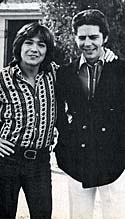
Wes Farrell and
David Cassidy
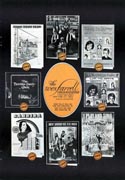
Trade ad for the
Wes Farrell Organization
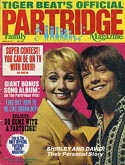
Tiger Beat's PF
Magazine,
March 1971
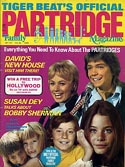
Tiger Beat's PF
Magazine,
May 1971
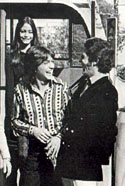
Wes on the set
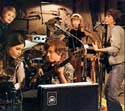
The Pilot
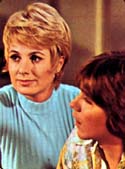
David and Shirley
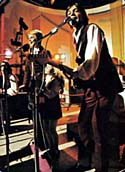
Performing in
Vegas
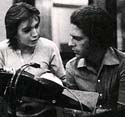
David and Wes
discuss a song
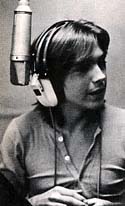
Getting ready to
lay down a track
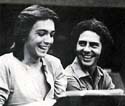
Happy with the
sound
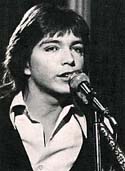
Filming a hit
song
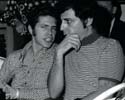
Wes with Hal
Blaine
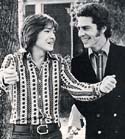
Wes and David
An Interview With...
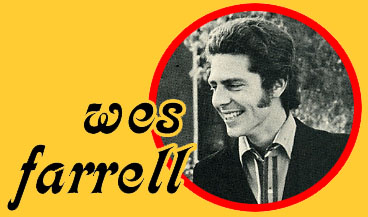 Wes
Farrell’s tremendous successful music career began when he was just 19 years
old. As a songwriter, Wes wrote hits for such past teen-age stars as Dion,
Chubby Checker, Timi Yuro and Freddie Cannon. In 1966 Wes formed his own company
called The Wes Farrell Organization. His first big hit with his own publishing
company was the incredibly successful song, “Hang On Sloopy” (recorded by the
McCoys). He also wrote “Come A Little Bit Closer” and “Let’s Lock The Door”
(recorded by Jay and the Americans), “Come On Down To My Boat” (recorded by
Every Mother’s Son) and many Partridge Family tunes including “I’ll Meet You
Halfway,” “Doesn’t Somebody Want To Be Wanted,” and “C’mon Get Happy.”. Within
his company, which dealt largely with music publishing and producing, Wes worked
with such artists as Neil Diamond, Barry Manilow, the Rascals, Every Mother’s
Son, The Cowsills and The Brooklyn Bridge. By 1970, The Wes Farrell Organization
was responsible for the sale of 10 million single records and five million
albums. The hit list of songs he published over the years includes “Candida” and
“Knock Three Times” (recorded by Tony Orlando and Dawn), “Groovin’,” “How Can I
Be Sure,” “People Got To Be Free,” “”Lonely Too Long,” and “What A Beautiful
Morning” (recorded by the Rascals), “Danke Schoen” (recorded by Wayne Newton),
“Indian Lake” (recorded by The Cowsills), “I Like Dreaming” (recorded by Kenny
Nolan), “The Night Chicago Died” (recorded by Paper Lace), and many more. Wes
Farrell has over 100 gold records to his name!
Wes
Farrell’s tremendous successful music career began when he was just 19 years
old. As a songwriter, Wes wrote hits for such past teen-age stars as Dion,
Chubby Checker, Timi Yuro and Freddie Cannon. In 1966 Wes formed his own company
called The Wes Farrell Organization. His first big hit with his own publishing
company was the incredibly successful song, “Hang On Sloopy” (recorded by the
McCoys). He also wrote “Come A Little Bit Closer” and “Let’s Lock The Door”
(recorded by Jay and the Americans), “Come On Down To My Boat” (recorded by
Every Mother’s Son) and many Partridge Family tunes including “I’ll Meet You
Halfway,” “Doesn’t Somebody Want To Be Wanted,” and “C’mon Get Happy.”. Within
his company, which dealt largely with music publishing and producing, Wes worked
with such artists as Neil Diamond, Barry Manilow, the Rascals, Every Mother’s
Son, The Cowsills and The Brooklyn Bridge. By 1970, The Wes Farrell Organization
was responsible for the sale of 10 million single records and five million
albums. The hit list of songs he published over the years includes “Candida” and
“Knock Three Times” (recorded by Tony Orlando and Dawn), “Groovin’,” “How Can I
Be Sure,” “People Got To Be Free,” “”Lonely Too Long,” and “What A Beautiful
Morning” (recorded by the Rascals), “Danke Schoen” (recorded by Wayne Newton),
“Indian Lake” (recorded by The Cowsills), “I Like Dreaming” (recorded by Kenny
Nolan), “The Night Chicago Died” (recorded by Paper Lace), and many more. Wes
Farrell has over 100 gold records to his name!
After The Partridge Family ended, Wes founded Chelsea Records, producing records for a diverse range of artists, including Wayne Newton, Austin Roberts, Lulu, Johnny Whitaker, and Rick Springfield. He also founded Coral Rock Commercials, the Cleo-winning music house responsible for creating advertising jingles for various television commercials.
Wes also scored several motion pictures, most notably the Academy-Award-winning Midnight Cowboy (1969). Since 1966, the Farrell publishing, productions and manufacturing companies were responsible for worldwide sales figures of over 300 million records, dozens of gold records, Emmy and Grammy nominations, and many other national and international awards.
Sadly, Wes Farrell passed away from cancer in the mid-nineties, leaving behind a legacy of pop music yet to be equaled.
The following interview was conducted by the editors of Tiger Beat’s Official Partridge Family Magazine during the recording sessions for the Partridge Family’s second LP, “Up To Date.” It was published in the March and May 1971 issues and is re-printed here in it’s entirety. Enjoy!
Tiger Beat’s Official Partridge Family Magazine: How did it happen that you were chosen to produce music for “The Partridge Family”?
Wes Farrell: The President of Bell Records was looking for someone to produce the Partridge Family’s music. He asked me to attend a screening of the pilot and when I saw it, I flipped out! It was the one thing I had always wanted to do. I had seen it on screen and it really knocked me out. I saw David as an idol, which is important for the people who would concentrate on the records. Shirley fit in perfectly, I think. It was something like I had never seen. It was young, it was very good, it had a lot of depth and emotion and it came right down to it being highly contemporary and conducive to a gigantic record act!
TBOPFM: When you first saw the pilot, did a Partridge Family sound come to mind?
WF: Most definitely, yes. To me sound is so visual. There are a hundred thousand colors associated with a sound. After talking with Paul Witt and Bob Claver, the show’s producers, the next step was deciding what is The Partridge Family? Who is it? Where is it? So we began with David, and it was funny because he was a bit unprepared. Not knowing who or what is a Wes Farrell, we arranged to meet at Paul Witt’s office. David came down with his guitar. He wasn’t really sure he could describe to me what he wanted to do vocally because he was a little hung up on certain kinds of music that weren’t necessarily the type I wanted to record. So we got a couple of albums and he sand along with them, which was quite ridiculous because it really didn’t give me any idea of what David sounded like! So we went from that to singing with the guitar and after we did a couple of songs he was very relaxed. He played some of his ideas for me, and I loved his sound! Then I had to find songs that fit the sound. So I went back to New York and I tried something I’ve never tried before. I asked Screen Gems for their viewing room and they viewed the pilot show for me four times! I invited 66 writers and told them exactly the sound I was looking for to go with The Partridge Family. There were a lot of non-believers, who didn’t think the show would be any good, so they weren’t interested in writing anything. But right from the first second I knew it was going to be gigantic!
TBOPFM: Can you remember your first recording session with David?
WF: Because David’s schedule is so involved, we usually don’t have the opportunity to learn the songs completely before going into the studio. And that’s how it was at our first session. It didn’t worry me too much, though, because the time we did work together gave me enough time to realize that David would catch on very quickly. I’ll never forget that first night, it was really wild. I started to play the background music, and you must remember that he has never recorded before. I asked David to get in front of the microphone and sing the lyrics, while I recorded the background music. I told him while I’m cutting the track the only way I can feel the record is if you are singing with the track. He said, “Well I don’t know the song that well.” We were doing “I Think I Love You.” I said, “We’ll just go through it two or three times.” So we began to go through it and he was singing along with the song and in a few minutes he knew the song perfectly! I had expected a blank. I expected anything less than a good performance from him. I didn’t expect him to be as aware and as “on” as he was. David has a great quality of intake that allows him to learn very quickly. He is very polite, he is fine in experimenting, using his voice differently at different times and if I can change an idea quickly he will change with it. Anyway, after running through “I Think I Love You” two or three times, while I was getting the proper recording levels, we did it once and would you believe we recorded it on the very first take? It’s so unbelievable, especially since it’s very hard to get the low part. That’s the only part of the song David needed help with.
TBOPFM: Since recording was new to David, was he interested in learning about studio techniques?
WF: He was as curious as anybody else, but I take a very distinct position on that. I feel an artist is an artist. I’m rather overpowering at what I think is the way a record should be produced. And feeling so strongly about it, I feel that what I must limit myself to is what fits the artist best. I feel that the artist must go along with me. I don’t think an artist can produce himself, because the level of objectivity just isn’t there. I think David is interested in everything he is doing and is anxious to discover what he has heard about, and see everything he possibly can. I think part of the secret to everything you want to do is being experienced. David always loved to sing.
TBOPFM: Is David pretty serious when he’s recording?
WF: I like to work in a very relaxed atmosphere, because I don’t think that tension brings out anything in anybody. David is always pretty relaxed. The only tension that goes up is the excitement of the result. Like waiting for a track for an hour or two and knowing I’ve arrived at what I wanted, but that kind of tension is the kind you love. Like the other night we were just recording the second album. We had worked an hour and a half on one song which we all loved, but it wasn’t going just right. We were looking for a feeling, a tempo, a mood and it just wasn’t happening. I said, “Either we throw the song out, and it’s a great song, or we take a break.” So we took a half hour break and everyone had a cup of coffee and when we went back to work we got the song in one take!
TBOPFM: Can you remember any funny incidents that have happened in the recording studio?
WF: The only think I can think of is one night David had a bad cold and I sang all the lead vocals so the engineers could get sound levels and then when it came time for me to teach David the songs, my voice was too hoarse to sing!
TBOPFM: Do David and Shirley work well together in the studio?
WF: They have only worked together a few times. Usually I do them separately. It works out better, because then I don’t have to take them off the set at the same time. Our recording procedure is – I put down the background tracks first, then I put down David, then the background singers and that’s when I bring Shirley in. She sings with the background group. If I’m going to add violins and horns, I always do that last. They few times they have worked together, they’ve been marvelous. Their singing has a tone that is unusual and great!
TBOPFM: Does David get very excited about recording new songs:
WF: Well, first of all we spend a lot of time talking about the music. I call him about four times a week from New York and David’s level of enthusiasm about the music is like an atomic bomb explosion. He knows a lot about music and he’s not like some people who have just been thrown into music overnight.
TBOPFM: Is David taking an interest in writing music?
WF: Last night we worked about seven hours on one of his first songs. I think he’ll end up being very involved in writing!
TBOPFM: Can you remember how David reacted when “I Think I Love You” first came out?
WF: For the first two weeks David was really concerned. He called me every day. Then we started to get reactions – the first week it was played in a few cities and the second week Seattle came out with it and in another week the record jumped from number 11 to number 9. I called David and told him I was talking to the record people every day and it was being played in six or seven cities. David was so excited! You realize that a piece of your life is in it and for it to be as important to a million people as it is to you is just so thrilling! When the song began to hit the charts, every disc jockey I talked to felt that it was the fastest climbing record they had seen since “I Wanna Hold Your Hand.”
TBOPFM: Does David like to invite his friends to the sessions?
WF: For the most part we both like to keep the sessions closed. The work involves a level of total concentration and though friends don’t mean to interrupt, just having a lot of people in the studio is distracting. To keep that level of concentration with people around is impossible, so we do like to keep the sessions closed.
TBOPFM: Can you describe David as a friend?
WF: We became friends, because basically we are the same kind of people. We enjoy what is basically real. Real things. The kind of things that last. We have respect for one another and I’m sure there are many years ahead of us to experience a deepening of friendship that is very difficult to describe. David’s knowledge of my total commitment to his interests, my total thinking towards the need for everything too be right, when it can so easily be wrong, is very professional at this point. The most important level of friendship is understanding and David knows what I want for him and I won’t settle for less than that!
TBOPFM: Do you see much of David outside of the studio?
WF: We spend a lot of time together whenever I am in California and have become very close friends. We both get a great deal of fun in contemplating all the different areas we want to work in on record. We have a great deal of respect for one another. The other night, we went out to dinner. David had a date and I took my wife and after dinner we went to Bumbles to dance. It was a Saturday night and we had a ball together!
TBOPFM: Do you feel the second Partridge Family album will have any surprises in store for the fans?
WF: Yes. I think the next album will be as exciting to me as Beatles albums were – they just got better and better. I want to continue the same sound harmonically and vocally, but I’m most anxious to step us to something that’s new to listen to, a whole new area of interest. Each time the Beatles brought out a record, it was always fresh and exciting. Well, I want this to be the same!
Partridge Family Songs Composed by Wes Farrell:
The Partridge Family
Album:
--
Brand New Me (With Eddie Singleton)
-- Bandala
-- I Can Feel Your Heartbeat (with Jim Cretecos & Mike Appel)
-- Somebody Wants To Love You (with Jim Cretecos & Mike Appel)
-- Singing My Song (with Diane Hildebrand)
The
Partridge Family Up To Date:
--
I’ll Meet You Halfway (with Gerry Goffin)
-- Doesn’t Somebody Want To Be Wanted (with Jim Cretecos & Mike Appel)
-- I’m Here You’re Here (with Gerry Goffin)
-- Umbrella Man
-- Lay It On The Line (with David Cassidy)
-- There’s No Doubt In My Mind (with Gerry Goffin)
The
Partridge Family Sound Magazine
--
One Night Stand (with Paul Anka)
-- Brown Eyes (with Danny Janssen)
-- Rainmaker (with Jim Cretecos & Mike Appel)
-- Twenty-Four Hours A Day (with Danny Janssen)
-- Love Is All That I Ever Needed (with David Cassidy)
The Partridge Family
Shopping Bag:
--
Something New Got Old (with Bobby Hart)
-- Last Night (with Tony Romeo)
-- Hello Hello (with Tony Romeo)
-- If You Ever Go (with Tony Romeo)
The
Partridge Family Notebook:
--
Friend And a Lover (with Danny Janssen & Bobby Hart)
-- Storybook Love (with Adam Miller)
-- Love Must Be The Answer (with Peggy Clinger & Johnny Cymbal)
-- Something’s Wrong (with Danny Janssen & Bobby Hart)
The
Partridge Family Crossword Puzzle:
--
Sunshine (with Danny Janssen & Bobby Hart)
-- Now That You’ve Got Me Where You Want Me (with Danny Janssen & Bobby Hart)
-- Let Your Love Go (with Danny Janssen & Bobby Hart)
The
Partridge Family Bulletin Board:
--
Money Money (with Danny Janssen & Bobby Hart)
-- Lookin’ For A Good Time (with Danny Janssen & Bobby Hart)
-- I Wouldn’t Put Nothin’ Over On You (with Danny Janssen & Bobby Hart)
Unreleased Tracks:
-- I
Don’t Care (with Bobby Hart)
-- I Wanna Be With You (with Gerry Goffin)
-- When Love’s Talked About (with John Bahler & Tony Asher)